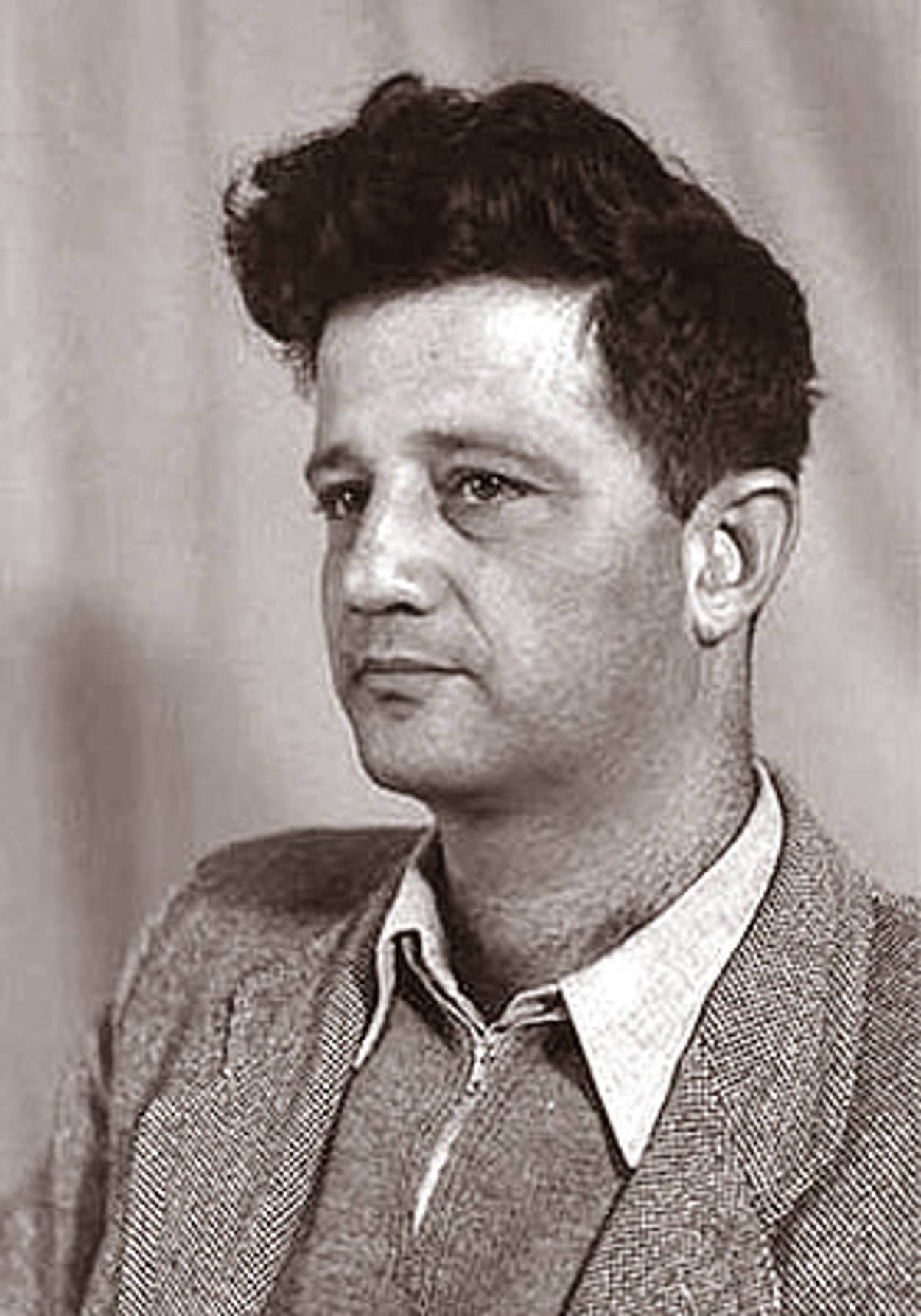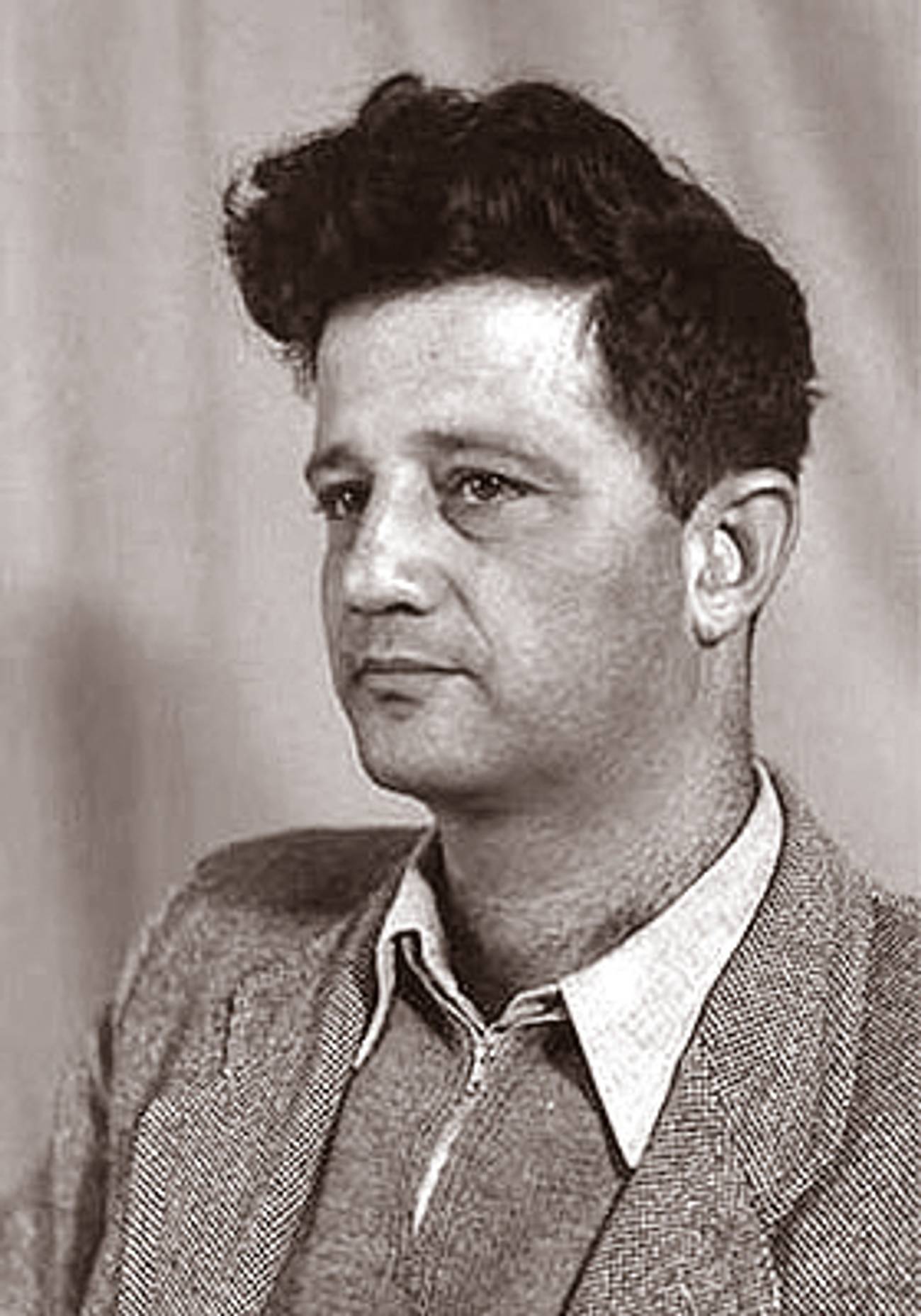Firmly in the Fold
S. Yizhar harangued and criticized the country he loved




In Israel, literature and politics are inextricably, and often uncomfortably, intertwined. When the country’s dean of letters, Yizhar Smilansky, died last summer shortly before his 90th birthday, obituaries and critical evaluations fell out along partisan lines, praising or condemning him as a left-wing writer.
The label isn’t inaccurate, but it isn’t precise, either. As a writer, Smilansky was as much a nostalgic reactionary as an angry leftist. As a public figure, he was as much a man of the Zionist center as a spokesman for its peace camp.
Smilansky, who wrote fiction under the penname S. Yizhar, was born in Rehovot, Palestine in 1916. Now a suburb of Tel Aviv, Rehovot was then a Jewish farming village in a largely Arab land. It had been founded by pioneering Jewish nationalists of the First Aliyah, such as Yizhar’s Russian-born parents, who sought both to revive Jewish life and culture in the nation’s ancestral land and to metamorphose the national character of the Jews—turning them from businessmen, shopkeepers, and financial middlemen into manual laborers and farmers who would work their own land. In keeping with that grand agenda, Yizhar’s father and his uncle were farmers, but also public figures and writers who helped transform Hebrew from an ancient tongue to a language of modern commerce, politics, and literature.
From them, Yizhar absorbed both a romance with the land and an intimate relationship with his native language. He achieved literary prominence in 1938 with the publication of his novella Efraim Goes Back to Alfalfa. A decade later, he served in Israel’s War of Independence as an intelligence and educational officer, and before the shooting stopped, he’d published his most famous and controversial short story, “Hirbet Hiz’ah.”
The story opens on a clear winter day, toward the end of the war. A detachment of Israeli soldiers receives orders to take the Arab village of Hirbet Hiz’ah. To the soldiers, the village looks peaceful but, according to intelligence reports, it has been infiltrated by enemy combatants. According to the orders, “the inhabitants are to be rounded up…loaded on to vehicles and transferred beyond our lines. The stone houses are to be blown up and the earthen huts are to be burned.”
The narrator and his comrades tramp through the fields, ascend a hill, and wait. When ordered to do so, they spray the village with their machine guns, loading Arabs onto trucks, blowing up their homes. Then the soldiers go home.
Throughout the brutality, the narrator’s conscience plagues him. He realizes that his squad has sent the Arabs into exile, just as the Jews were sent into exile long ago.
This was potent stuff to publish in 1949, while the newborn country was still mourning its dead and seeking to establish the justice of its cause. According to the official Israeli line, the more than half a million Palestinian Arabs who became refugees during the war had left their homes at the instigation of the invading Arab armies. Outraged politicians and generals called for “Hirbet Hiz’ah” to be censored.
But the outrage was far from universal. “Hirbet Hiz’ah” became one of the most popular works of fiction in the years following the war. The very soldiers whom Yizhar was accusing of having committed a horrible crime avidly read his account of their actions.
For all the ugliness it portrays, “Hirbet Hiz’ah” is a profoundly nuanced work. Yizhar’s narrator—clearly meant to represent the author—debates with himself throughout the operation. When he gets the nerve, he debates with his comrades as well. He runs through the justifications for the war, reminds himself of the Jewish refugees in Europe, desperate to leave the lands of slaughter and come to the one place they can claim as home. He knows that the Arabs have been fighting and killing the Jews. But, unlike the men around him, he’s just not able to let those larger truths serve as an excuse for the specific injustice he is perpetrating in Hirbet Hiz’ah, against these particular Arabs.
The narrator never tells us why he goes through with the operation. At the end of the story he returns home with his unit. He’s still one of them. He thinks they’re despicable, but he stays.
In his life, Yizhar acted as his narrator did. He was an outspoken critic of Israel’s first war in Lebanon, in 1982. He consistently opposed the tendency of Israeli leaders to use force when other means were available. Four years ago, then in his late 80s, he supported a group of pilots who signed a statement saying that they would not carry out missions over the West Bank and Gaza Strip. Yet despite his trenchant criticism of Zionism and his country, he served in the Knesset for nearly two decades—not as a nonconformist parliamentarian in a radical faction, but as a Labor Zionist loyal to David Ben-Gurion.
After the 1948 war Yizhar continued to write stories about Israel’s fighting men—heroes, but not idealists. These stories were followed in 1958 by his epic (and exhausting, according to some readers) two-volume novel, Days of Ziklag, which recounts the thoughts and experiences of a small detachment of soldiers sent to take a single hill in the War of Independence. Yizhar’s soldiers fight for their country, but are overwhelmingly concerned with their basic needs for food and sleep. When they are bored or frustrated, they might recite poetry, but they might just as easily shoot a donkey for the fun of it.
After Days of Ziklag, Yizhar abandoned fiction for 30 years, devoting himself to a public and academic career. He wrote regular opinion columns on political and social issues for Davar, the newspaper that served as the mouthpiece for Ben-Gurion and the Labor movement. He taught education and literature, and was a seminal influence on a younger generation of writers, such as Amos Oz and A.B. Yehoshua. He may have been a dissident, but remained firmly within the fold.
“Hirbet Hiz’ah” made headlines again soon after the 1977 election of the Likud government, which remained steadfast in its refusal to acknowledge any Israeli responsibility for the creation of the Palestinian refugee problem. In February 1978, a dramatized version of the now-canonical story was scheduled to debut on Israel’s national television station. Just 90 minutes before airtime, the minister of education Zevulun Hammer canceled the broadcast. His action caused such a public outcry that Hammer eventually allowed the program to air at a later date.
In a telling sequence in “Hirbet Hiz’ah,” Yizhar explains why the soldiers waiting on the hill must talk to one another, even though they have had the same conversation over and over and know exactly what each one of them is going to say: “…if you lie there and don’t do anything thoughts start stealing in, and we know: when thoughts start, trouble starts.” The battle, the village, and its inhabitants have become for them mere obstacles to getting home. And returning to the land is all-important. The human tragedy is harsh and terribly real, but what Yizhar really hears is the cry of the landscape.
His narrators describe it at length, in complex rhythms that ebb and flow. Consider, for example, his novel Preliminaries, an English translation of which was just published this month by Toby Press. Here’s a marathon sentence that is devoted to describing the line that separates a hill from sky: “…a wooly, soft, and delicate line, made as if from the cautious, quickly retracted touch of the mist, running fluent, in leisurely arcs, over the hills’ rounded brows….” His books don’t contain much plot. This explains why Yizhar is so little read these days, and why he’s so difficult to translate.
Like all the great romantics and prophets, Yizhar’s reference point is the pristine, mythical, eternal countryside that existed in his mind. The farm where Yizhar grew up was set in a pastoral Palestine of dirt roads and wagons and long, starlit nights. Villages like the fictional Hirbet Hiz’ah, with their terraces and olive groves and colts and camels, were an essential part of that landscape.
When the War of Independence ended, that landscape was gone. The Arab villages were empty and soon the country filled with indigent Jewish immigrants—first Europeans, then the even stranger Jews of the Islamic world. The landscape that Yizhar and his generation had fought and died for was not, as they had vaguely, unrealistically believed, eternal. Rather than preserving their paradise, the war had destroyed it. They were faced with a living, breathing, rough and rude Jewish state—and they really didn’t like it. Notably, when Yizhar began publishing fiction again a decade and a half ago, to great acclaim, the novels harked back to his childhood and the lost world of pre-state Palestine.
Yizhar’s sublime prose, and his insistence on telling the whole truth of what he saw, made him a great writer and a trenchant critic of his country and society. But, ultimately, like the soldiers he portrayed, what he really wanted was to go home.